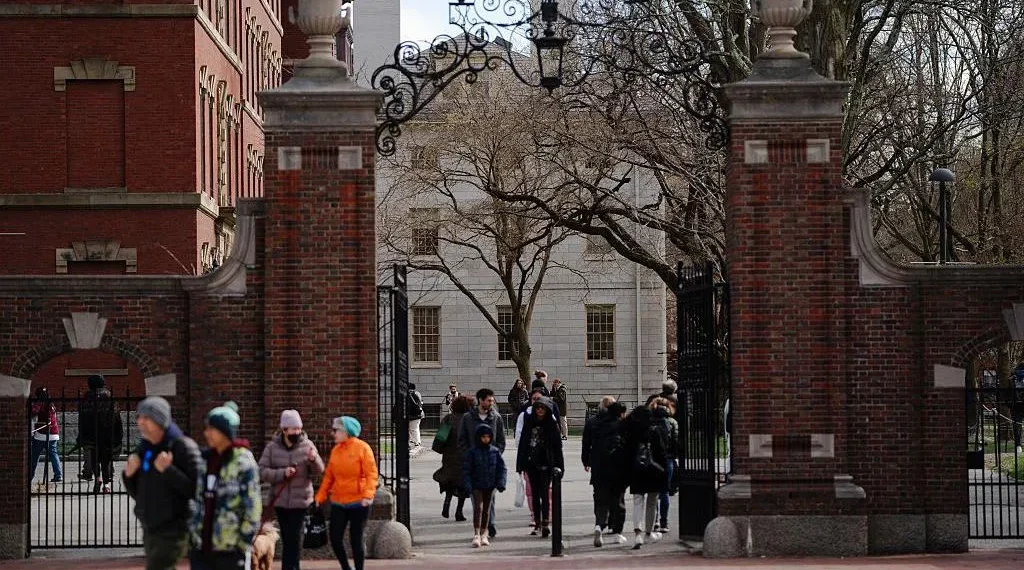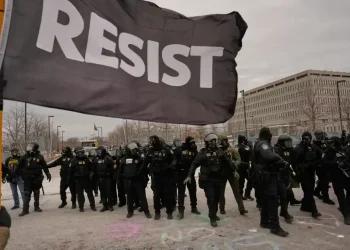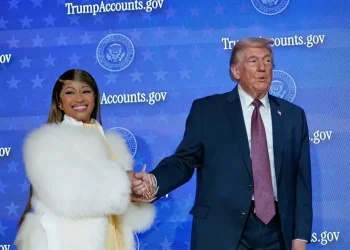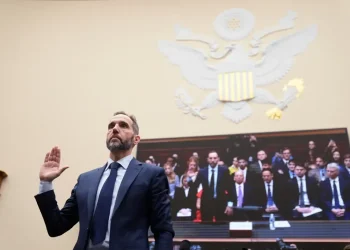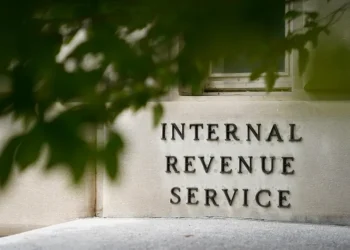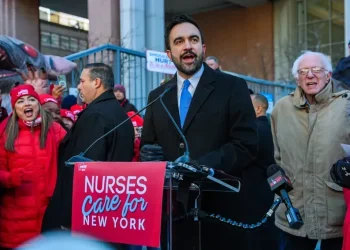Trump Administration Threatens Harvard with Foreign Student Ban Over Antisemitism Concerns
The Trump administration has escalated its confrontation with Harvard University, threatening to ban the institution from enrolling foreign students. This warning follows Harvard’s refusal to comply with demands from the White House to overhaul its hiring, admissions, and teaching practices in an effort to combat antisemitism on campus.
At the heart of the dispute is the White House’s push for significant changes at the university, including tighter controls over foreign student visa-holders. Homeland Security Secretary Kristi Noem has called for Harvard to provide detailed records on what she described as the “illegal and violent” actions of foreign students. In response, Harvard has insisted that it will not compromise its independence or the constitutional rights that protect its academic freedom.
Harvard President Alan Garber made a bold statement on Monday, affirming that the university would not surrender its intellectual autonomy. “The university will not surrender its independence or relinquish its constitutional rights,” Garber wrote in a message to the Harvard community.
The Trump administration’s new request, sent by Noem, warns that if Harvard does not comply with the demand for records, it could lose the “privilege of enrolling foreign students.” This is a serious threat, as international students make up more than 27% of Harvard’s enrollment this year. In addition, the university faces a freeze on approximately $2.2 billion in federal funding, a significant financial blow.
The situation worsened when President Trump suggested that Harvard could also lose its valuable tax-exempt status. Reports indicate that the Internal Revenue Service (IRS) is considering plans to strip Harvard of this status, which could cost the institution millions in lost revenue annually.
Trump has been vocal about his discontent with Harvard, calling the university “a joke” on his Truth Social platform. “Harvard can no longer be considered even a decent place of learning, and should not be considered on any list of the World’s Great Universities or Colleges,” Trump declared. He further criticized the university, accusing it of teaching “hate and stupidity” and calling for an end to federal funding.
Harvard’s defiance is part of a broader pattern of the Trump administration challenging higher education institutions. The government’s antisemitism task force has flagged at least 60 universities for review, further escalating tensions between the White House and academic institutions.
During his campaign, Trump made it clear that he viewed many universities as hostile to conservative viewpoints, a sentiment shared by Vice President JD Vance. The administration’s critiques of universities intensified after pro-Palestinian protests occurred on campuses, leading some Jewish students to report feeling unsafe and harassed.
Harvard is not the only university under scrutiny. In March, Columbia University capitulated to several of the administration’s demands after the Trump administration withheld $400 million in federal funding over accusations that the university had failed to adequately address antisemitism. Columbia agreed to replace the head of its Middle Eastern, South Asian, and African Studies department and pledged to review its admissions process for bias.
Harvard, too, has made some concessions, including dismissing the leaders of its Center for Middle Eastern Studies after they were criticized for not sufficiently representing Israeli perspectives. However, the university has drawn a firm line at the recent list of demands from the White House.
As the situation continues to unfold, the question remains: How long can Harvard maintain its stance against the Trump administration’s pressure? With billions of dollars in federal funding at stake, Harvard’s ability to uphold its independence while facing these unprecedented challenges will be closely watched by universities across the nation.
The clash between the Trump administration and Harvard is part of a broader cultural and political battle over the role of higher education in shaping public discourse. The outcome of this dispute could have lasting implications for the future of academic freedom and the relationship between universities and the federal government.
This article was rewritten by JournosNews.com based on verified reporting from trusted sources. The content has been independently reviewed, fact-checked, and edited for accuracy, neutrality, tone, and global readability in accordance with Google News and AdSense standards.
All opinions, quotes, or statements from contributors, experts, or sourced organizations do not necessarily reflect the views of JournosNews.com. JournosNews.com maintains full editorial independence from any external funders, sponsors, or organizations.
Stay informed with JournosNews.com — your trusted source for verified global reporting and in-depth analysis. Follow us on Google News, BlueSky, and X for real-time updates.
